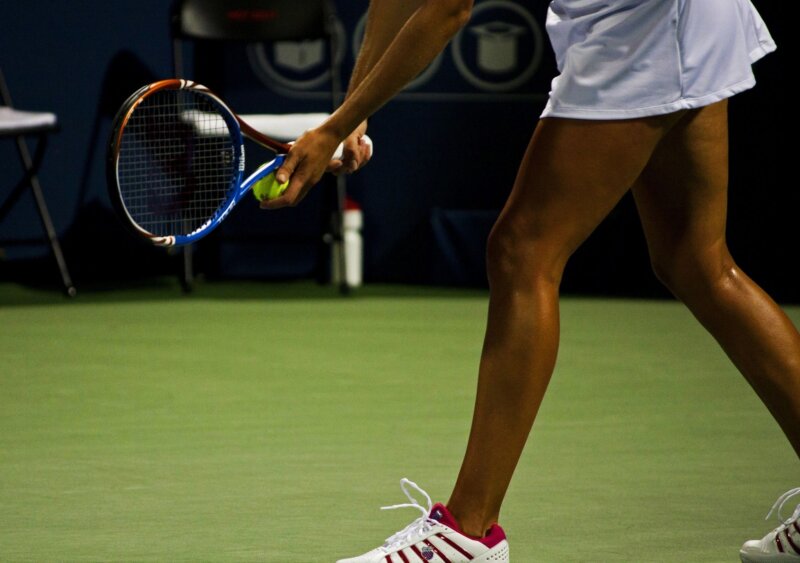Whether starting a new business or running an established company, you will set goals. These goals will form part of your assessment of the business’s success. But is hitting targets enough? Could the bar you are clearing be higher? Are you and your business truly performing well?
A tennis player needs to do more than win service games, a racing driver needs to do more than take pole position on the grid, and a football team needs to win more than local derbies. Whilst Formula One, tennis and football are very different, they share commonality in how they organise themselves regarding performance, and entrepreneurs should take note of the myths these elite sports reject.
Myth 1: You have to be performing 100% of the time
Sport professionals only perform at key moments. We have termed this the ‘performance window’. It represents the time period or event where someone needs to be performing at their most intensive, focused way, with no distractions. By reserving maximum focus and energy for key moments, sports people are able to perform more sustainably and get better results. After all, if you put 100% of your energy into your training, then you will have little left in the tank when you really need it.
Organisations could learn a lot by adopting the concept of a performance window. Many employees believe they have to be giving 100% (or even 110% – whatever that actually means) to be doing a good job. While a lot of essential work is done outside of the performance window—planning, preparation, experimenting, training and practice—the key is that the intensity, focus and emotional energy expending in these tasks should not equal that of the performance window.
Myth 2: If people are working hard, they are performing
Be careful of conflating effort with performance. People can direct a lot of energy, love and care into something in the hope that their effort will be rewarded, but this is not performance. In sports this is the equivalent of rewarding the person who came last in the race because they tried hard, even if they lacked skill. This is fine at the school sports day, but in elite sports, rewards are based on your ability to win, to do better than the competition, regardless of how hard you tried.
The problem with acknowledging effort alone is that organisations end up with more of what is rewarded. If you reward people for working hard, instead of outcomes, you will just get exhausted people trying to make even more heroic efforts in order to be appreciated. Instead, focus on defining performance outcomes for teams, individuals and the organisation overall. If people understand where they need to head towards, they will focus their energy on that, rather than attempting to prove themselves in a way that adds nothing to the organisation and may well be detrimental to all.
Myth 3: Resting is taking a holiday
Well-rested people think more clearly, have better judgement and are more productive. Why wouldn’t you want more of this? The answer, as elite sports know well, lies in the art of taking the right kind of rest. This is something elite sports do much better than organisations. Sports people are highly competitive, so it can be hard to get them to stop or slow down. But science informs much of the elite sports rest cycle in a way that the sports professional can see how the rest phase actually helps performance.
The secret is that in elite sports you rest what you would use to perform, you do not do nothing. Elite sports professionals are usually resting their physical body but may still be very active in the rest phase. For example, footballers commonly play golf during the off season, professional golfers hit the gym after competitive rounds to balance the body after a lot of repetition, tennis players cool down using an exercise bike. They don’t just perform and then sit still.
Organisations that tend to think that holiday is the only time to rest actually miss an opportunity to use rest as part of the performance cycle. Much of the denial of a rest phase in organisational work is the concern that it will be perceived as a weakness of some kind, but in fact it could be your secret sauce. The term ‘a change is as good as a rest’ was coined for a reason, but rather than doing lots of random activity you can design your rest phase so that it enhances your performance by resting whatever part you use to perform in your work.
For example, if you are a leader carrying a lot of emotional burden for your team and this is an important part of your performance, you may need emotional rest. Some leaders who fit into this category plan their one-to-ones so that they have a week each month with none so that they can focus on a technical aspect of their work, giving them a break from the emotional aspect of their work. If your work involves a lot of focused thinking, you may need mental rest, so maybe working in a more practical way or in collaboration with others for some time gives you respite from that aspect of your work.
Learning from elite sports
While many organisations seek sustainable performance, the reality is often a performance struggle. This can be very demoralising for leaders and employees. While strategists talk about the importance of metrics, so much of what makes an organisation work is how its people are organised and motivated. Drawing insights from elite sports, entrepreneurs can reshape their approach to performance. Embracing a nuanced understanding of effort, optimising performance windows, and redefining rest can pave the way for sustainable success in the corporate arena.
ABOUT THE AUTHOR
John McLachlan is co-author of ‘Rest. Practise. Perform. What elite sport can teach leaders about sustainable wellbeing and performance’. John takes the latest scientific and
academic thinking and makes it useful and easy to apply. His approach is grounded in research and professional practice that spans 20-plus years. John holds Masters degrees in psychology and health research, and his specialist area is what organisations can learn from elite sports performance. John’s goal with ‘Rest. Practise. Perform.’ is to help leaders and organisations find a working rhythm that delivers top performance whilst also prioritising people and their health.
Web:
www.monkeypuzzletraining.co.uk/rest-practise-perform
LinkedIn:
https://www.linkedin.com/in/karen-meager
https://www.linkedin.com/company/monkey-puzzle-training-and-consultancy-limited/
John McLachlan
- John McLachlan






